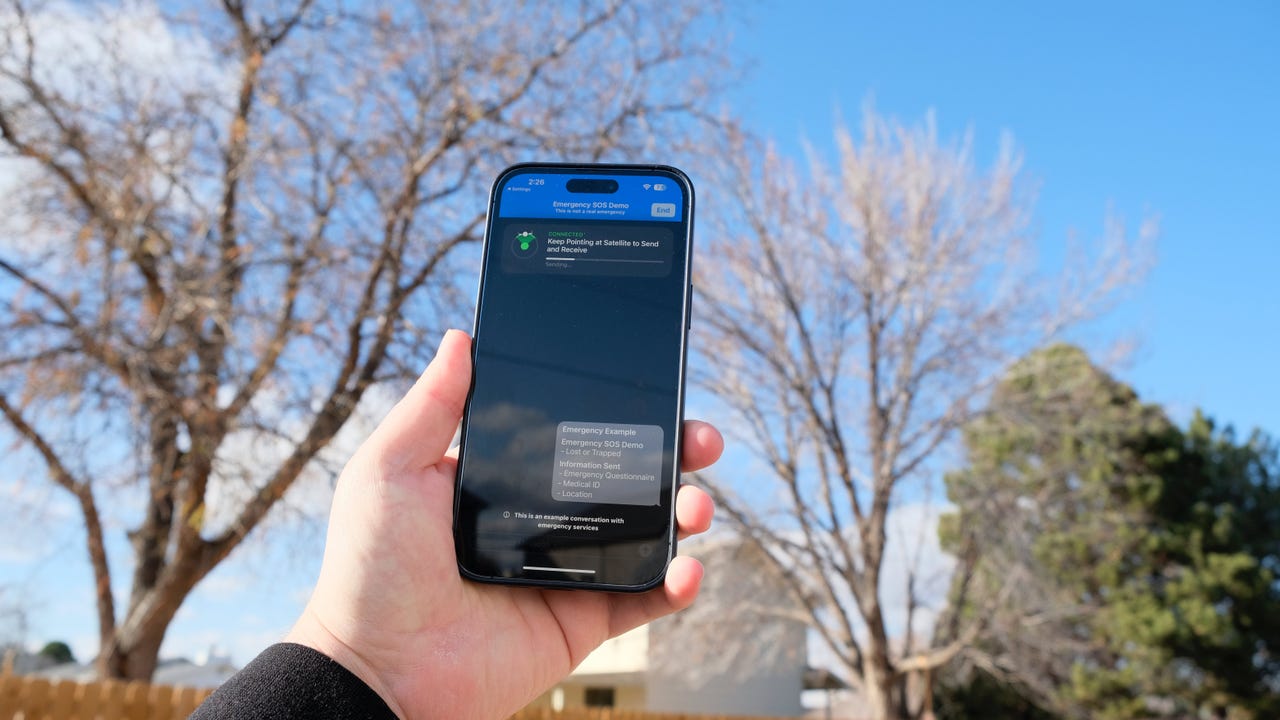'ZDNET Recommends': What exactly does it mean?
ZDNET's recommendations are based on many hours of testing, research, and comparison shopping. We gather data from the best available sources, including vendor and retailer listings as well as other relevant and independent reviews sites. And we pore over customer reviews to find out what matters to real people who already own and use the products and services we’re assessing.
When you click through from our site to a retailer and buy a product or service, we may earn affiliate commissions. This helps support our work, but does not affect what we cover or how, and it does not affect the price you pay. Neither ZDNET nor the author are compensated for these independent reviews. Indeed, we follow strict guidelines that ensure our editorial content is never influenced by advertisers.
ZDNET's editorial team writes on behalf of you, our reader. Our goal is to deliver the most accurate information and the most knowledgeable advice possible in order to help you make smarter buying decisions on tech gear and a wide array of products and services. Our editors thoroughly review and fact-check every article to ensure that our content meets the highest standards. If we have made an error or published misleading information, we will correct or clarify the article. If you see inaccuracies in our content, please report the mistake via this form.
Satellite messaging could be coming to Android 14

Emergency SOS via Satellite is a core feature of the iPhone 14, so it's no wonder that Google would want to add this feature Android.
While Apple was the first to bring two-way emergency satellite messaging to the masses, we all knew that it wouldn't be long before Google brought this feature to Android users. After all, Apple's emergency feature has been giving the iPhone a fair bit of exposure lately.
Also: This tiny satellite communicator is packed full of features and peace of mind
Code snippets uncovered by developer Neïl Rahmouni (via SamMobile) hint at an emergency satellite messaging feature coming to Google Messages.
Looks like Google Messages may use Garmin Response for the Satellite Emergency SOS
— Neïl Rahmouni 🐢 (@neil_rahmouni) August 28, 2023
If true it could mean that Emergency Satellite messages would be available in 150+ countries👀https://t.co/egVqM6JaJV
(1st screen is a mockup, 2nd are the translations found in Google Messages) pic.twitter.com/Rza9BUxJwJ
Contained within the code are references to "Garmin" and "messaging by satellite."
Right now, there's nothing official from either Google or Garmin, and we'll have to wait for the Android 14 launch later this year to see if this becomes an official feature.
Also: The best satellite phones and gadgets for reliable off-grid communication
Garmin has a range of satellite messaging devices, with devices such as the InReach Messenger and InReach Mini 2. These devices leverage Iridium's constellation of 66 satellites, and based on my testing, they work really well, are incredibly reliable, and they're a handy backup in case things turn bad.
View at AmazonHowever, to bring satellite messaging to smartphones, Google is going to need devices that have satellite capability, something that at present is quite limited.
Smartphones such as the Cat S75 have built-in satellite antennas, but if Google is planning to include this feature in Android 14, then it's likely that we'll see mainstream manufacturers such as Samsung, Motorola and the like adding satellite support.
But there's a question of cost.
Currently, Emergency SOS by Satellite on the iPhone is "free for two years after the activation of iPhone 14 or iPhone 14 Pro," and since these devices aren't yet a year old, we don't know how much Apple will eventually charge for this.
Also: I tested this tiny satellite communicator on an off-grid adventure. Here's my verdict
What I do know is that a Garmin inReach satellite subscription is not cheap.
A basic consumer plan is $14.95 per month, the minimum you need to have access to the SOS messaging feature. I can't see the average consumer footing this sort of bill, and I'd expect that, just as with the iPhone, this feature would be offered free of charge to owners of new, high-end Android handsets, with Google footing the bill.
Having emergency access to the satellite network can save lives, and the more devices that have this, the better.
